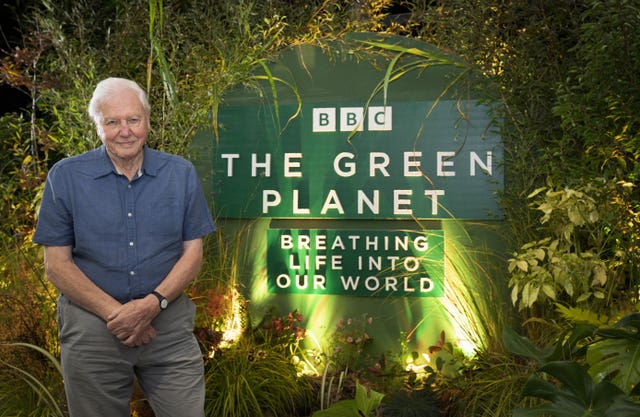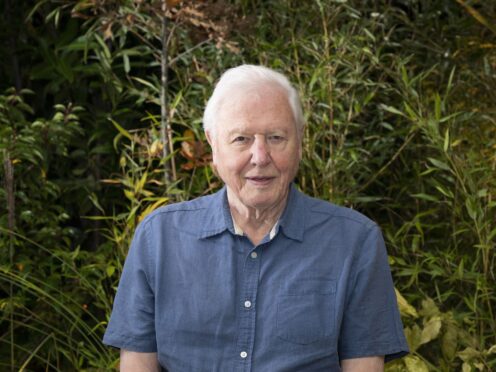Sir David Attenborough has spoken about the “stars” of his forthcoming natural history series, saying plants can be “very vicious things”.
The TV presenter and naturalist, 95, was speaking about The Green Planet, a five-part series from the BBC’s Natural History Unit, which uses ground-breaking filming techniques to show viewers the intricate lives of plants and the ecosystems that flourish around them.
Sir David, who appears on the cover of the January-February edition of Wired UK, told the publication: “We make lots of programmes about natural history, but the basis of all life is plants.
“We ignore them because they don’t seem to do much, but they can be very vicious things.

“Plants throttle one another, you know – they can move very fast, have all sorts of strange techniques to make sure that they can disperse themselves over a whole continent, have many ways of meeting so they can fertilise one another and we never actually see it happening. But now we can.”
The series, due to air in January 2022, had its global premiere in Glasgow in conjunction with the Cop26 summit on tackling climate change.
Sir David told the science and technology-focused publication about his “motivations behind creating television series”.
He explained: “A desire to exploit the latest technical innovation has been the defining stimulus of almost every major television series I have ever made. The first was television’s ability to get acceptable images from 16 millimetre film. Until 1952 it had to use 35 millimetre, the size used by cinemas. The cameras were mounted on bicycle wheels and had valves inside.”
The Green Planet, which will air on BBC One and iPlayer, will use new developments in robotics, moving time-lapse, super-detail thermal cameras and ultra-high-speed in order to “travel beyond the power of the human eye”, the BBC has said.
The veteran broadcaster, whose other series include Seven Worlds, One Planet, The Blue Planet and Blue Planet II, also spoke about the role of technology in helping to engage the younger generation with environmental issues.

He said: “Younger audiences – their phones are the main way to reach them. I hope as a consequence that the needs and wonder and importance of the natural world are seen. We tend to think we are the be all and end all – but we’re not.
“We’re both the victims and benefactors, and the sooner we can realise that the natural world goes its way, not our way, the better… If new technology enables us to bring that home to viewers, that’s important. Anything that transports people into an environment which is unfamiliar, but which is an important natural one, is very valuable, and I think people will find it exciting.”
The full interview is in the January-February issue of Wired UK, available via digital download and newsstands from December 2.
